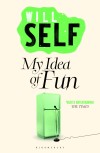Psychogeography 1
I’ve taken to long-distance walking as a means of dissolving the mechanised matrix which compresses the space-time continuum, and decouples human from physical geography. So this isn’t walking for leisure – that would be merely frivolous – or even for exercise, which would be tedious. No, to underscore the seriousness of my project, I like a walk that takes me to a meeting or an assignment; that way I can drag other people into my eotechnical world view. “How was your journey?” they say. “Not bad,” I reply. “Take long?” they enquire. “About 10 hours,” I admit. “I walked here.” My interlocutor goggles at me; if he took 10 hours to get here – they’re undoubtedly thinking – will the meeting have to go on for 20? As Emile Durkheim observed, a society’s space-time perceptions are a function of its social rhythm and its territory. So, by walking to the meeting I have disrupted it just as surely as if I’d appeared stark naked with a peacock’s tail fanning out from my buttocks while mouthing Symbolist poetry.
My publishers were holding a sales conference in Eastbourne and I agreed to go along and address the bourgeforce. I decided to entrain from Victoria to Lewes and then walk the South Downs Way for the final 22 miles. This would be a nostalgic walk, putting myself securely back in my father’s world of pipe-smoking, grey flannel trousers, chalk downlands, Harvey’s bitter, Bertie Russell, nudism, the Peace Pledge Union … Gah! Christ! … I can’t breathe in this interwar period … I’d better come up for air. Even though, nominally, I was born in 1961, my father made sure that I too was raised in the interwar period, and we roamed the South Downs a great deal together during my childhood. “It seemed perfectly natural,” said the minicab driver who took me from Lewes station to the start of the walk, speaking of his own ambulatory upbringing … but I’m getting ahead of myself.
As I consulted maps and timetables at my desk in London, I found myself faced with a dilemma. On the day, should I wait for the branch-line train from Lewes to Southease, where I could join the South Downs Way, or should I gain a half-hour by taking a cab there? I dislike cars more than trains – they con their autopilots with the illusion of freedom – but half an hour is significant when you’re pushed for walking time. I thought about the options for two long days, then called Talking Pages.
Talking Pages had been absorbed into the great telephone-answering gulag known only as “118”, so doubtless my call was answered by a Mongolian former yak herder, deep in the Altai Mountains. I pictured the call centre wedged like a corrugated spacecraft in some dusty gully. Inside, bandy- legged men in traditional dress slouched about on leather cushions, watching antediluvian videotapes of Police Five, in order to assimilate the social mores of telephone-banking customers in the Potteries. A once-proud nomad, doing a passable imitation of a Staffs accent, gave me a choice of three minicab companies that served the Lewes area.
Naturally, the first two I called turned out to be located in Brighton, despite their Lewes exchange numbers. And no, they couldn’t answer my distinctly local enquiry about the time it takes to drive to Southease. The third company was different. They were located right inside Lewes station, and yes they knew the area intimately. The Controller spoke as if every one of his drivers had – like some humanoid nematode – filtered the very earth of Sussex through their bodies. The Controller assured me the drive would take mere minutes, so I booked the cab.
The next morning was bright and clear. Sunlight flashed off the braces of orthodontically challenged teenagers who boarded the train at Plumpton on their way to school in Lewes. After detraining, I was so high with anticipation that it wasn’t until the cab had gone about 200 yards in the wrong direction out of Lewes that I pointed it out to the driver: “I want to be on the east side of the Ouse, at Southease Station.”
“No problem,” he breezed. “I’ll drop you down a track on this side and you can cross the river on the swing bridge.” Then he went on about his childhood, engendering such a warm feeling of mateyness in me that I over-tipped the sly fellow.
In fact, he’d dropped me outside Rodmell, over two miles from where I wanted to be. As I puffed along the track, my pipe sending up great clouds of smoke from the Presbyterian tobacco stuffed in it (a blend introduced to Stanley Baldwin in 1923 by the future Moderator of the Church of Scotland), I saw in the mid-distance the little two-carriage train stopping at Southease station. Now, no matter how hard I walked for the rest of the long day, I would still be lagging behind. The sinuous Downs, the soaring Seven Sisters, the majestic Beachy Head, all suddenly concertinaed into the space between two low-firing synapses in the lazy minicab driver’s mind. Machine Matrix – one, Psychogeographers – nil. I could hear Durkheim’s low and evil laughter in my inner ear; not a pretty sound.

